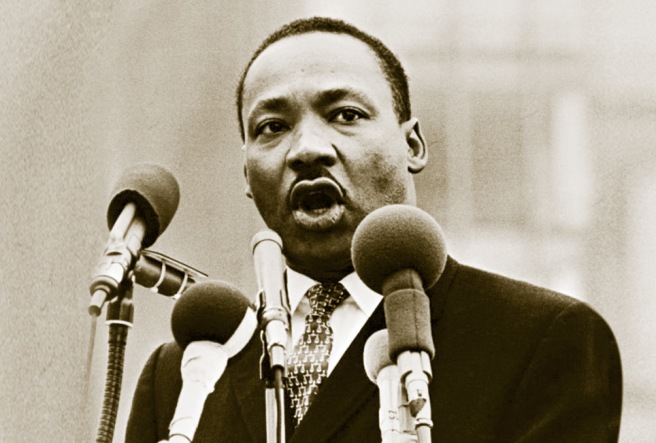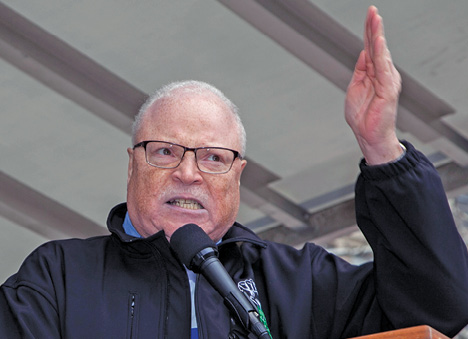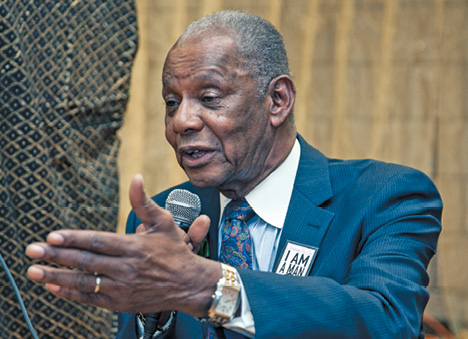Public Employee Press
Democracy in Action
I AM 2018 marks 50th anniversary of Dr. King’s death

On the 50th anniversary of Dr. Martin Luther King Jr.’s assassination April 4, the union remembers Dr. King for his unrelenting commitment to social justice and democracy and his solidarity with the Memphis sanitation workers in AFSCME Local 1733, who risked life and limb in a 75-day strike for fair wages and safe working conditions.
AFSCME’s then-President Jerry Wurf dispatched William Lucy to Memphis, Tenn., to support the workers’ resolve to gain better wages and a recognized voice as a union.
Wurf later invited King, a young and visionary preacher who understood the connection between labor rights, economic rights, human rights, and civil rights to come to Memphis.
“Our needs are identical with labor’s needs,” King told the 1961 AFSCME convention audience. “Decent wages, fair working conditions, livable housing, old age security, health and welfare measures, conditions in which families can grow, have education for their children and respect in the community. That is why Negroes support labor’s demands and fight laws which curb labor.”

America’s Jim Crow apartheid system inflicted an onslaught of degradation and privation on most black people, especially in the South. In February 1968, Echol Cole and Robert Walker were crushed to death by a garbage compactor at work. Their union brothers said ‘Enough!’ and 1,300 walked off the job to demand dignity and respect.
“These men made about $7.80 a week,” said Lucy, an eyewitness and architect of the strike, which he said raised “fundamental questions…about the plight of the working poor.”
For King, Memphis was a microcosm of the issues central to his Poor People’s Campaign.
Standing up for themselves incurred sacrifices the strikers’ wives and children also bore. Many wives joined the picket lines. Tons of garbage piled up. Twice the strikers almost reached an agreement. But the city of Memphis met the peaceful protests with police violence. The mayor refused to recognize the union, or even the basic humanity of workers who marched with placards that read: I AM A MAN.

On the evening of April 3, hundreds packed the Mason Temple to hear King deliver his now famous and final oratory, the “Mountaintop.” The next morning King was killed, gunned down on a balcony of the Lorraine Motel.
April 4, 1968, is a watershed moment. The strike ended 12 days later after federal mediation with union recognition and more gains than anticipated for Local 1733.
In this fiftieth year since this most profound event in American history, AFSCME and a coalition grassroots leaders are in Memphis April 2 to 4, to honor King’s legacy and the courage and sacrifice of the sanitation workers.
The union’s I AM 2018 initiative connects their struggle to today’s challenges. Lucy said, “We should forever keep the history of this struggle alive.”
The Feb. 24 Workers’ Day of Action that drew 10,000 supporters to Foley Square and thousands more to similar rallies across the country two days before Janus V. AFSCME was heard by the U.S. Supreme Court and the West Virginia teachers strike, which ended in victory for teachers and students, are “heroic demonstrations… of the kind of democratic action Dr. Martin Luther King Jr. fought and died for,” said AFSCME President Lee Saunders.
“History,” King once said, “is a great teacher. Now everyone knows that the labor movement did not diminish the strength of the nation but enlarged it. By raising the living standards of millions, labor miraculously…lifted the whole nation to undreamed of levels of production. Those who attack labor forget these simple truths, but history remembers them.”


